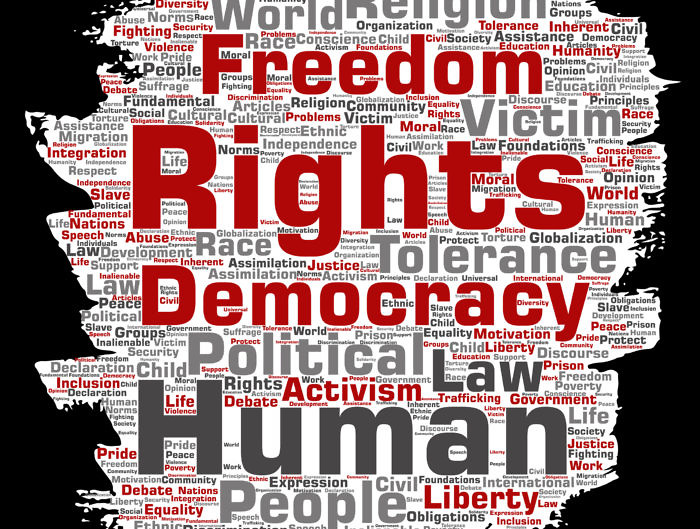The Commission identified the Eritrean National Service programme- which came into effect since 1994 with the expressed intent of passing the legacy of the Eritrean war of independence onto the new generation, strengthen Eritrean defense capabilities, impressing upon the young a sense of discipline and patriotism and organizing and mobilizing the population for development programmes- as the main context within which the regime of impunity and unconditionality prevails.
Citing the ambiguous legal basis on which the duration of national service programme was made indefinite and arbitrary using national security threat and the Warsay Ykealo Development Campaign- a development campaign announced in 2002- as the main raison d’etre; the involuntary nature of the programme where requests for release are routinely and systematically denied without any proper explanation and indication of remaining period of service; the forced employment of members of the programme in ‘economic development’ and private enterprises related to higher officials in a direct contravention of the 1957 convention on the abolition of forced labour which prohibits the use of forced labour even for economic development purposes; the sever restriction of movements and religious observances imposed on members; the torture and killings to which members are subjected to for breaking the stringent rules of the programme; and the dire consequence the national service programme has had over the family life of members, the Commission of Inquiry designates the national service programme a forced enslavement.
For a ruling elite which began its post-independence career with a vow not to tread the path beaten by other post-colonial third world countries and which, with messianic fervor and narcissistic self-adulation characteristic of so many modernist movements, declared in its 1994 National Charter to “perform miracles in peaceful nation-building as we did in the war of liberation”, the Commission of Inquiry’s report that it in fact has out-performed many post-colonial states in exposing its population to utter oppression and depravity comes as a devastating indictment.
In some sense, the human rights disaster in Eritrea is the perversion of the modernist project the ruling party set out to implement. Like many of its kindred political movements which emerged in the crucible of third world anti-colonial struggles with the aspiration of not only removing foreign occupation but also creating new modern societies, the PFDJ has made mass mobilization and discipline the central tenet of its ideology. As Tricia Redeker Hepner and David O’Kane aptly observed in their introduction to their book “Biopolitics, Militarism and Development: Eritrea in the Twenty-First Century”, the PFDJ sought to rationalize the Eritrean society in the name of alleviating poverty and backwardness and ensuring progress. Partly as a means to that end and partly as part of that end, it has deployed all state instruments to invade, control and if possible mold even the most intimate provinces of its citizens’ life.
Taking a leave out of the Leninist catechism of the indispensability of a vanguard revolutionary leadership equipped with unparalleled insight into the present and a messianic prescience into the future and in a spirit reminiscent of the civilizational burden, the PFDJ gratuitously took upon itself, in the language of its National Charter, “the historic responsibility to pass on to future generations the basic elements for modern and just society.” If one closely read the concatenation of editorials, interviews and seminars conducted by top PFDJ cadres in the decade following the end of the Ethiopia-Eritrea war and accompanying the declaration of the much-hyped Warsay Ykealo Development Campaign, one would encounter three persistently magnified leitmotif. One is the need for prioritizing economic development over political system of the liberal kind. Examples such as Maoist and post-Mao China and South Korea under the military dictatorship were invoked to drive home the importance of first securing bread over a liberal obsession with elections and political freedom. This theme is close to what Dostoevsky, in a gibe at the crass utilitarianism, positivism and nihilism rampant in fin de siècle Russia, had one of the characters he hated say “A pair of boots is always more valuable than Pushkin, as one can do very well without Pushkin but not without boots.” The second leitmotif is the need for discipline, sacrifice, constant vigilance and mobilization. The revolution-era stoical forbearance was deemed very crucial for building the country and citizens were called to make sacrifices in order for the next generation to bask in peace and prosperity. The third related theme is that which stresses the indispensability of the current leadership for the stability, security and prosperity of the country.
To some extent, the PFDJ has ideologically benefited from criticisms libertarian politics receives for its supposedly misplaced priority of political liberties over what is assumed to be a more substantive economic and social equalities. It has won some sympathies among many Eritreans and very few left-wingers who consider the prescription of liberal notions of individual liberty on those who struggle to win their daily bread as a case of idle fancy or worst an insult to their condition. However, as amply shown by the Commission of Inquiry, the Eritrean government’s national service programme has succeeded in destroying the economic and social life of hundreds of thousands of Eritreans and their families by locking them in a situation bordering on enslavement. The programme does not only strip Eritreans off their political and civil rights but puts them in a dangerously precarious economic position. The Eritrean government inadvertently testifies to this fact in its attempt to defend itself from criticism for being the main driver of the exodus of the youth out of the country by saying that they are migrating for economic reasons. To once again use Dostoevsky’s ‘boot/Pushkin’ metaphor, the PFDJ has first deprived Eritreans off Pushkin for a promise of some sort of footwear and eventually left them without both.
[tweetthis] PFDJ’s Eritrea: Neither Boots Nor Pushkin [/tweetthis]




Comment
Saleh Younis, why aren’t you using your name on this site? Anyone who’s familiar with your work at Awate can tell this is you. Don’t your readers have a right to know who’s delivering the “curated news” and “informed opinion” that your site’s tagline promises?